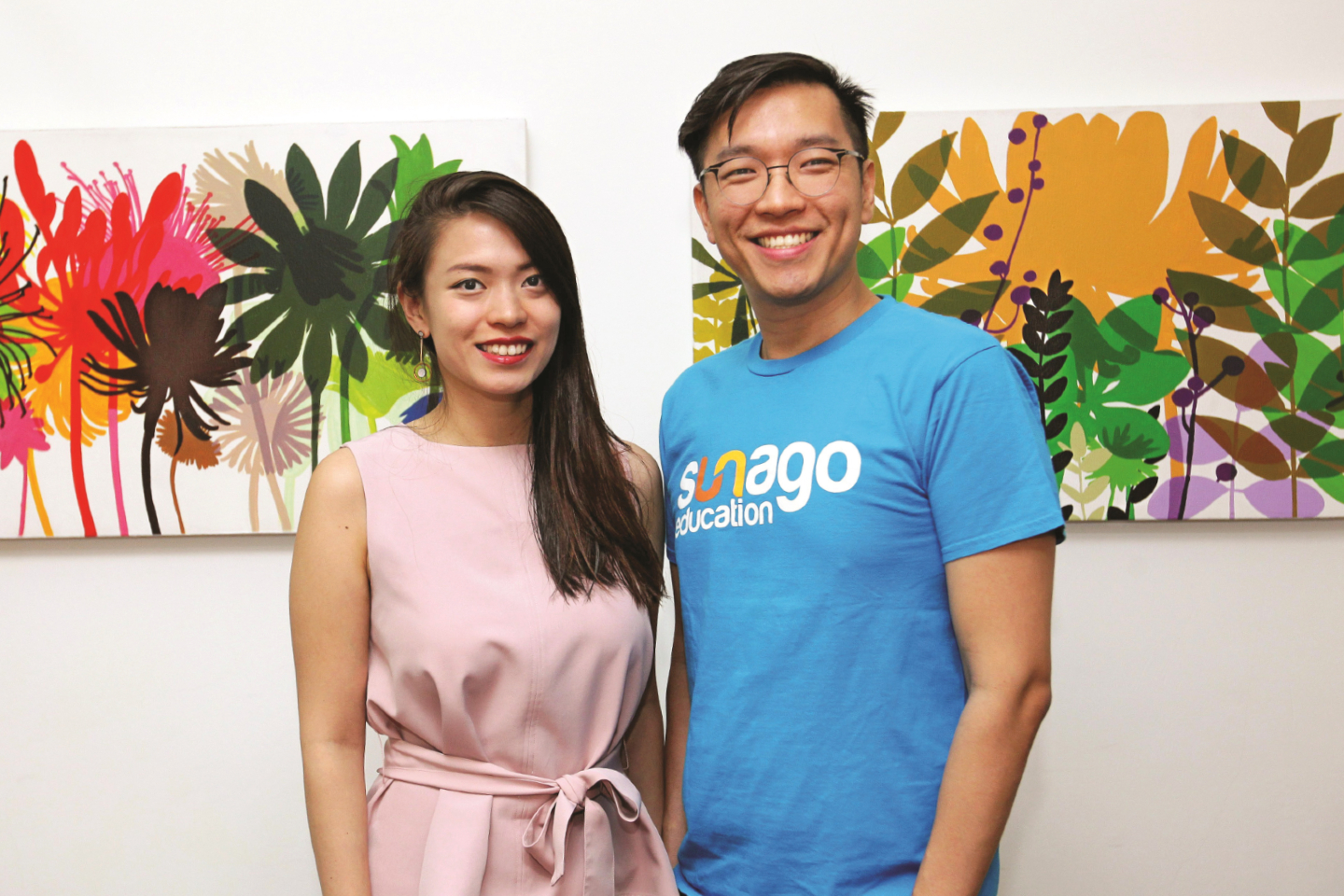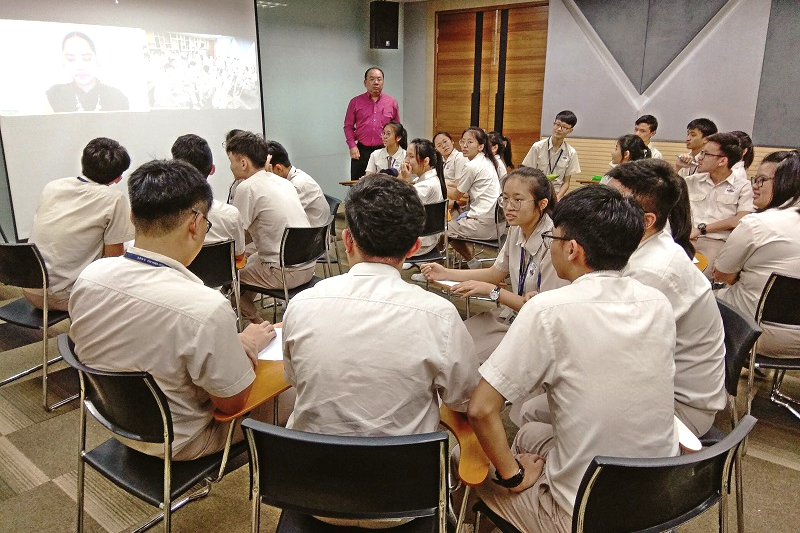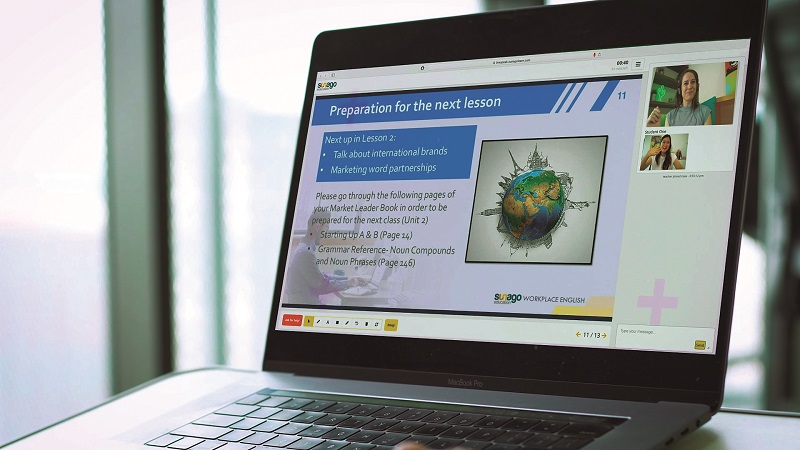
Shereen and Sean Chee from Sunago Education (Photo: Suhaimi Yusuf/The Edge)
As far as entrepreneurial inspiration goes, Sunago Education founder Sean Chee got the spark for his live online English tutoring start-up from what he considers a personal failure — an all-too-brief stint at the gym.
“I was about to get married at end-2017. Typical of most grooms, you go to the gym in the last few months. But I couldn’t seem to stick to it, so I engaged a friend to teach me,” Sean, 35, recounts.
That helped him keep at his fitness routine till his wedding day. He has since stopped going to the gym, but the experience taught the education entrepreneur a valuable lesson: the human element makes all the difference. At that point in time, the former IT business executive had spent 18 months piloting and testing various products to get his Edu-Tech company going.
“We started in 2016 just developing and trying out more traditional, albeit online learning products, but the stickiness factor was lacking with the passive style of learning. Being at the gym and having a trainer makes you more likely to go back — [there’s] someone asking when you are going to meet next and to guide you. That changed our trajectory,” he shares.
Sunago, which means to come together or to be assembled in Greek, underscores Sean’s belief that learning together and having a sense of belonging— such as having a teacher and a coach online to motivate you, or even studying together with friends — far surpasses the value of any material or content one may have on hand.
sunago_classroom_photo.jpg

That is not to say that Sunago does not have good materials. In fact, the young company has “curated” its own syllabus and method in collaboration with Pearson, a leading British-owned education publishing and assessment solution provider.
Still, what separates the start-up from traditional online live learning models is the element of personalisation, made possible by technology.
“The beauty of tech is that it allows you to customise for groups and for individual users. We have a client, a giant retailer, who wanted to improve the speaking skills of its staff, so we curated a lesson plan for that need,” says Sean.
His sister Shereen, 27, a corporate lawyer who came on board last year as chief operating officer, puts it this way: “I think we’re adapting to the change in learner behaviour. People want things quick, and relevant to them. It’s about being on-the-go as well, to see almost instant results.”
“Learning today is no longer about just coming here for six months, learning English an hour every Saturday,” Sean continues. “It’s a more comprehensive approach because we break it down to a science. We test you, we figure out exactly what your weaknesses are, and we address those points first.”
That is partly why he created Sunago as a start-up, rather than park it under ELS Language Centres Malaysia, a premier language training centre in Malaysia started by his parents and of which he is an executive director.
“We wanted a blank canvas to make sure we have autonomy and are able to make quick decisions. We had to raise our own pre-seed fund though — about RM2 million from angel investors. Cradle Fund gave us a RM300,000 grant this year,” he divulges.
sunago_explainer_video_screenshot.jpg

Equally valuable are the mentors they have gained through the start-up journey, within and outside of the industry. Nonetheless, Sean says it was ELS Malaysia’s investment in technology over the years, via interactive games and computers, that convinced him of the potential attraction of technology in education.
Each online class is an hour long and Sunago employs more than 50 TESL-certified teachers from all over the world, all of whom need to have a degree and at least two years of teaching experience. They are also trained in the Sunago method because “teaching online is different from face-to-face”, says Sean, who regularly audits lessons alongside his core team.
He agrees that video conferencing lessons are not new but adds: “We’ve taken a very simple, basic approach and dug deeper, put a structure and curriculum around it, and assessments in place so everything is measurable. Within 12 weeks, our minimum package of classes, you can see marked improvement in the areas that need work.”
Qualifying that language is not learnt overnight, Sean brings in the gym analogy again: having specific goals and targeting them with the help of coaches is more effective than just general learning and hoping for the best. “Of course, we also have over 30 years’ [experience] running language centres, and Pearson coming in to give us advice,” he says humbly.
While her brother is the big-picture visionary, Shereen has an eye for detail honed through her previous job. Her very full plate of responsibilities centres on implementation of Sunago’s systems and the user experience, from product development to ensuring that reports generated from every class — done automatically using their systems, with input from the teachers — are useful for the students, teachers and employers who access them.
13415440_1013119952103132_6326995259546488454_o.jpg

“We also track fluency, confidence and grammar, with online exercises and tests in between lessons. These are charted on a graph to show the growth of the student over 12 classes.
“I think bringing together the best of both worlds is the way forward,” emphasises Shereen. “With automation, we can scale down to cater to personalised requirements, but on a large scale. At the same time, we bring in the human element to provide checks and balances. The teachers are here to communicate with you, they know your background and what you want to accomplish, and they make you want to go to the next class with them. They give feedback not just based on your online test performance, but also overall comprehension, fluency and confidence level throughout your interactions with them.”
As the pioneering online English learning start-up certified under The Human Resources Development Fund (HRDF), Sunago’s model of measurable lessons make a good fit for corporations, allowing them to track lessons either via recordings or the reports generated post-lesson.
Preparing for Series A fundraising now, the siblings hope to raise RM10 million to push the start-up into the Asean market next year. “We’re looking for investors as well as synergistic partners that can connect us to teachers and clients,” says Sean.
He is also focused on penetrating into local schools. Sunago currently conducts classes twice a week at Tsun Jin private independent school, Pin Hwa High School Klang and Sri Utama International School. Sean believes its effective model can be implemented in many more because “you can essentially have a native-speaking teacher and expose students to a variety of teachers and cultures without needing to hire them as staff. You just need to invest in tech — cameras and microphones.”
Shereen interjects, “It’s also about connectivity. Many students, especially in the rural areas, may not have access to the teachers and content that we normally have. We see a real opportunity to make a difference in that aspect.”
Ultimately, the duo hopes to work with the Ministry of Education to create a sustainable model that supports their push for English proficiency among students. Sean hints, “We’re breaking ground on that, hopefully soon. The goal is not just to teach English, but to build confidence while at it. And to do it, you actually need to make mistakes. Our set-up fosters an environment where it’s okay to make mistakes, it is an important part of learning.”
This article first appeared on Nov 4, 2019 in The Edge Malaysia.


